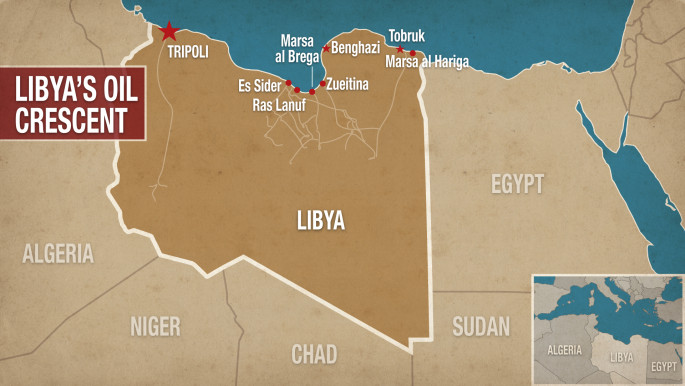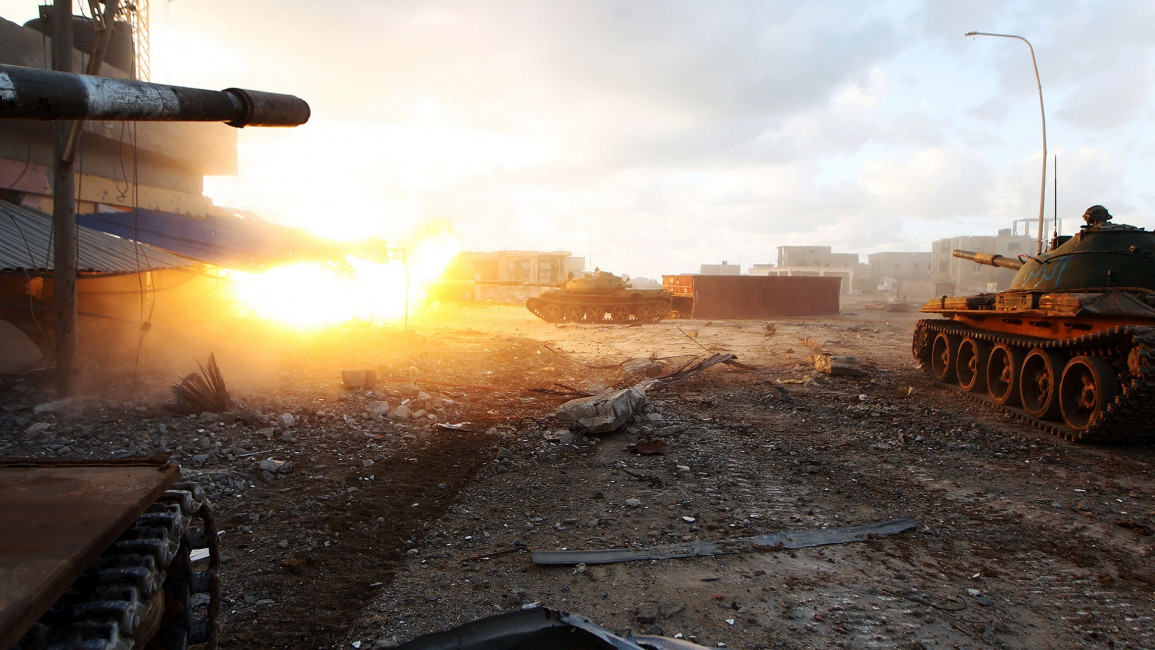Libya: Escalation feared as pro-Haftar parliament calls for elections
Libya’s eastern-based parliament has called for elections to be held early next year, after it backed out of a United Nations-brokered peace deal with rival authorities in the capital, Tripoli. The widening split has stoked concerns that violence could escalate in the fractured country.
In an open letter to the country’s electoral commission released late on Tuesday, the Tobruk-based House of Representatives requested the national election commission make “all the necessary arrangements to prepare for presidential and parliamentary elections before Feb. 2018,” citing Libya’s ongoing “difficult situation” and “political struggle.”
The body earlier voted to withdraw its support for the Tripoli-based Government of National Accord, a decision that comes days after breakaway militias backed by western Libyan factions seized oil terminals from the east’s strongman general.
Libya descended into chaos with its 2011 civil war, which ended with the killing of longtime dictator Muammar Gadhafi. The country has been split into two competing parliaments and governments, each backed by a set of militias, tribes and political factions.
Field Marshal Khalifa Hafter’s army is allied to the internationally-recognised parliament based in eastern Libya, and is backed by the UAE, Egypt and Russia. The internationally-recognised government based in the capital Tripoli opposes him.
 |
The Tobruk body has called on all Libyan parties to condemn the militias’ occupation of the two key oil terminals in what it described as “terrorist attacks" |  |
Oil crescent
The Tobruk body has called on all Libyan parties to condemn the militias’ occupation of the two key oil terminals in what it described as “terrorist attacks,” saying it was suspending its participation in peace talks until they did so. The militias, which oppose the parliament, say they intend to take the eastern city of Benghazi and drive Hifter from the area.
 |
| [Click to enlarge map] |
Haftar's forces have deployed more troops in preparation of a counterattack to drive out the militias, known as the Benghazi Defence Brigades, which are comprised of Islamic militants and former rebels recently defeated by Haftar's forces in Benghazi, Libya’s second largest city. They are also joined by militiamen from the western city of Misrata.
The Tripoli government says it is moving forces into place to occupy the oil terminals, which it says have been abandoned by the Benghazi Defence Brigades. It denies having any relationship with the Brigades, saying they were involved in a separate fight with Benghazi that should be negotiated peacefully.
On Wednesday, the Brigades welcomed Tripoli’s move, calling in a statement for fighting in the area to stop but vowing to continue its march to Benghazi.
The Tripoli-based Government of National Accord said that it has ordered Brig. Gen. Idris Abukhamada of the Oil Facility Guards to secure the terminals and protect them, reiterating its call for a cease-fire in the area.
“(We) reject any escalation of military violence anywhere in Libya, especially in the oil areas, which are the lifeline of the Libyan people,” it said in a statement early Wednesday.



